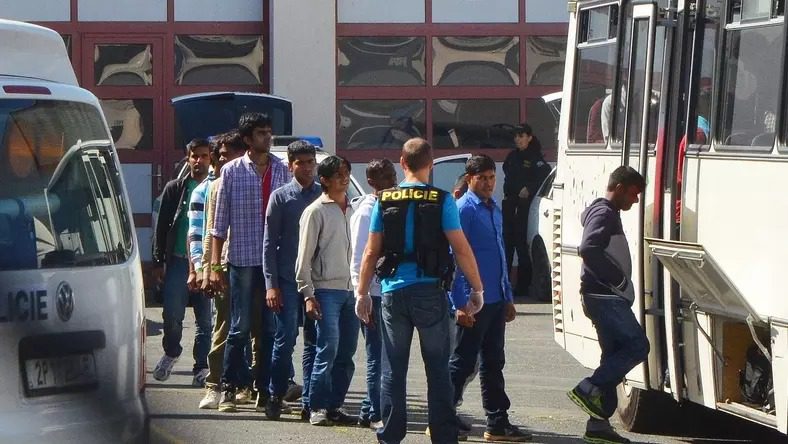Police have reported a 40.6% increase in the number of illegal migrants detected in the first three months of this year compared to last year. The Czech Foreign Police uncovered 2,658 illegal migrants, an increase of 767 people. Of those, 2,550 were found to be staying illegally in the country, while 207 were apprehended in transit, and 108 others attempted to cross the external Schengen border. The majority of those who were caught for illegal stay were from Ukraine (1,016 individuals), Moldova (456), and Syria (146).
The rise in the number of illegal migrants is due to cases where foreigners, mainly Ukrainians and Moldovans, were found to be staying in the Czech Republic illegally and wrongly believed they had the right to temporary protection due to the war in Ukraine, according to the spokesman for the Foreign Police, Josef Urban. Some migrants were also found to have fake documents, with Romanian, Slovak, and Bulgarian IDs being the most commonly forged.
As for transit migration, Syrians topped the list with 117 individuals, followed by citizens of Turkey (40) and Morocco/India (both with 11 people). Most of them arrived in the Czech Republic from Slovakia (144), with personal cars being the preferred mode of transportation (76 cases), followed by air travel (30 people) and trains (28 individuals).
Last year, the police detained 29,235 people for illegal migration, an increase of 18,065 individuals compared to 2021. The majority of those detained were Syrians (20,981 people). To address the issue, the Czech Republic temporarily reinstated border protection with Slovakia, and since February, only random checks have been conducted.
The increase in illegal migration is a worrying trend, and the Czech government has taken measures to combat the issue. One such measure is the construction of a new border fence, which aims to deter illegal border crossings. The government has also been cooperating with other countries, particularly those in the Schengen area, to strengthen border security.
The rise in illegal migration is a problem in the Czech Republic and many other European countries. The reasons for the increase are multifaceted and include factors such as economic instability, wars, conflicts in certain regions, and the ease of travel within the Schengen area. To address this issue, European countries need a collective effort to improve border security, address the root causes of migration, and work together to find solutions.





